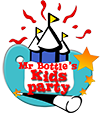It’s okay to make mistakes because if you can learn from mistakes, they make us better and stronger.
Exactly 2 years ago, I was invited to Pyongyang to perform magic at the 31st April Spring Friendship Art Festival.

In my theatre, there are a few VERY VERY amazing jugglers. During the 2 days of rehearsals, I was watching them practise. (There is no internet so that’s probably the only thing I could do and most of the performers couldn’t speak English.)

The jugglers were dropping their hats, balls, etc. Then later, they rehearsed their ‘mistakes’ with the live orchestra. It was then I realised they were making mistakes on purpose!

They knew that mistakes made them human. The performers knew that audience could accept their mistakes. They wanted the spectators to be with them, not against them. They knew that if they succeed subsequently, it would make their performances more amazing and stronger!
How can we apply this to children?
Many children grow up in a society that pressures them to be perfect – to get the highest SAT scores, to land prized scholarships, to get into the best universities. Parents correct or complete children’s homework to improve their grades. They argue with teachers who try to point out a child’s areas of weakness that need improvement.
How does all this focus on testing and perfection affect kids’ learning? And how can we help them understand that learning from mistakes is part of healthy development?
Why is it Important to Learn from Mistakes?
Whether it involves school work, personal friendships, or playing games, learning is enriched through error. Learning from mistakes is part of how we challenge ourselves to learn to do things differently. It motivates us to try new, innovative approaches to problem-solving. Learning from mistakes helps develop wisdom and good judgment.
In the Scientific American article, Getting it Wrong: Surprising Tips on How to Learn, research makes the case for more challenging tests that force kids to make errors. In the past, teachers have created conditions for learning that do not encourage errors. Parents do so, probably due to peer pressure as well. For example, if we drill children over and over again with the same math problem, they will eventually remember the answer. And if they are lucky, they will remember the answer on a standardized test.
This approach to learning assumes that if students are allowed to make mistakes, they will not learn the correct information. However, recent research shows this to be an incorrect assumption. In fact, studies have found that learning from mistakes enhances rather than detracts from learning.
Learn from your mistakes.
Wow… just wow.
